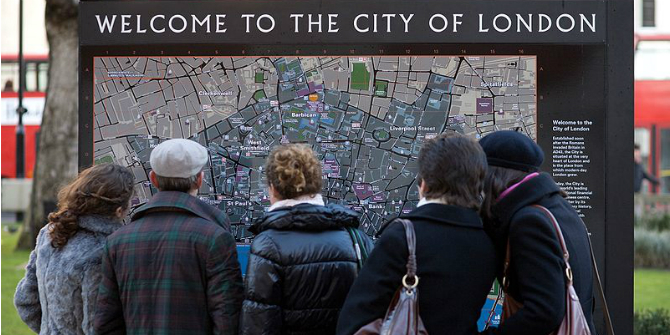This blog seeks to provide you with some suggestions on how to pick the best A-Level subjects to get into LSE. So read on to find out the best tips.
“Traditional” vs “non-preferred” subjects
LSE, like many other Russell Group universities, favours conventional subjects regarding A-Levels. But, of course, this is not limited to Mathematics, English and Science, but also to Sociology, Psychology, History and other studies. *To make your life a little easier, you can see the complete list by clicking here * The Undergraduate Admissions Office recommends selecting at least two of your subjects from the traditional list as they will provide you with the best preparation for studying at LSE.
Similarity of subjects
When picking your A-Level studies, try to acquire a good balance of disciplines to demonstrate that you’re a well-rounded individual who can think critically in complex ways. For example, instead of Economics, Business Studies and Accounting, consider throwing an essay-based subject into the mix, like English or Sociology.
Degree programmes with prerequisites
Regarding A-Level choices, some degree programmes at the LSE have prerequisites. If you know the exact degree programme you want to do or have a rough idea of what you would like to study, I recommend you check the course’s admission requirements before selecting your A-Levels. For example, BSc Mathematics and Economics requires either “A-level Maths, A-level Further Maths, and one other subject‘ OR ‘A-level Maths, two other courses, and AS-level Further Maths“.
Passion and pressure
The last and most important tip: choose what you are passionate about! I cannot stress how important this is. If you study something that you are not passionate about, you are less likely going to revise for that subject. And also, do not succumb to outside pressure, whether that comes from friends or even family members; please remember it is you who’s going to study the A-Levels, not them!
My personal A-Level experience
Granted, the advice above is all highly subjective and does not fully reflect LSE as I do not work for the Admissions team, but they are some of the prevalent tendencies found with the A-Level selections at LSE. For example, I studied Economics, Mathematics and Sociology for A-Levels, which helped me with my undergraduate degree in International Social and Public Policy. While Sociology and Economics are arguably the most directly connected in terms of theory and subject material, the Mathematics A-Level I took offered a solid foundation for studying statistical analysis in my degree.
Nonetheless, while many of you in Year 11 may have already chosen your A-Level subjects and are set to start on the following chapters of your academic pathways, whether that is college or sixth form, it is not too late to change your mind. You typically have two weeks after the commencement of the semester to swap your subjects, so if you are hesitant about some of your selections after reading the above, you are at liberty to alter them.
If you have any questions about anything I’ve written above, please comment below, where I can respond to any questions you may have. For further details on admissions, plase contact the LSE Undergraduate Admissions team by clicking here.






Hi
Wanted your advice if Business Studies, Maths, Sociology and AS in Further Maths are good subject choices if I wanted to do BSc Mathematics and Economics from LSE.
Also, does it lessen my chances of getting into LSE if I pick Business and Economics A level together with Maths.
Hi Shreya, many thanks for your interest in applying to LSE. Please get in touch with the team at lse.ac.uk/ask-LSE and they will help you with your queries.
Hi,
I intend to study economics in LSE. Will I have a disadvantage by not taking Further maths.
My subjects are Maths, Economics and chemistry
Hi Nidhi, thank you for your interest in studying at LSE. Please get in touch with our team who will be happy to assist you with your query: lse.ac.uk/ask-LSE.
Hi,
Studying Politics and Economics (LL12) in LSE is my dream, I just started AS level, I’m in year 12.
I’ve already picked Mathematics,Economics and Geography, do you think they are suitable subjects for LL12?
Or should I choose Sociology over Geography? Which combination do you think would be the best?
Hi Nikoloz, many thanks for your query. Please get in touch with our team at lse.ac.uk/ask-LSE who’ll be able to help you.
Hello, im currently doing 4 a level subjects which are Further maths, Maths, economics and Psychology. And i was wondering if its worth keeping further maths or dropping it and concentrating on my other three subjects (Maths, economics, psychology) in order to get the A*AA.
If i were to do 3 A levels , (Maths, Psychology, Economics) and got A* A A , or above, would this set me at a disadvantage if i didnt have my further maths? Or it doesnt matter ? (I hope on getting into the Bsc Economics faculty)
Hi Ali, many thanks for your interest in applying to LSE. Please get in touch with our team who’ll help you with your question – lse.ac.uk/ask-LSE
Hi
I am taking Maths, Economics, English Literature and Phycology for my ALs.
I am really interested in applying to LSE but I just found out I need to have Further Maths for AL to get into LSE. Now I am taking AS Further Maths and I have done Add Maths and Maths for my GCSE.
Can you please advise not taking Further Maths for AL would disadvantage on getting a place at LSE.
Thank you
Hi, Sudeshi, thank you for your interest in our degree programmes. Please get in touch with the student recruitment team at lse.ac.uk/ask-LSE and they’ll provide you answers to your questions.